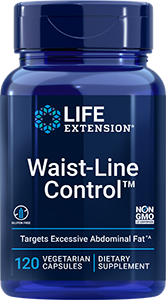|
Tuesday, March 24, 2015. A randomized clinical trial reported in the Journal of the American Medical Association (JAMA) found a lower rate of stroke among a large group of hypertensive men and women treated with the drug enalapril and folic acid.
The China Stroke Primary Prevention Trial (CSPPT) included 20,702 participants with hypertension and no history of stroke or heart attack upon enrollment. The subjects received 10 milligrams of the blood pressure drug enalapril with or without 800 micrograms folic acid for a median of 4.5 years beginning in May 2008. Subjects were tested at enrollment for variants of the MTHFR (methylenetetrahydrofolate reductase) C677T gene, which is involved in folate metabolism, and for serum folate, vitamin B12 and other factors at the beginning and end of the study.
Compared to participants who received enalapril alone, those who also received folic acid had a 21% lower relative risk of first stroke. The folate group also had 24% lower relative risk of ischemic stroke and a 20% lower risk of cardiovascular composite events consisting of cardiovascular death, heart attack or stroke over the treatment period in comparison with those who received enalapril alone.
"The CSPPT is the first large-scale randomized trial to test the hypothesis using individual measures of baseline folate levels," authors Yong Huo, MD, of Peking University First Hospital, Beijing, China and colleagues announced. "In this population without folic acid fortification, we observed considerable individual variation in plasma folate levels and clearly showed that the beneficial effect appeared to be more pronounced in participants with lower folate levels."
"We speculate that even in countries with folic acid fortification and widespread use of folic acid supplements such as in the United States and Canada, there may still be room to further reduce stroke incidence using more targeted folic acid therapy--in particular, among those with the TT genotype and low or moderate folate levels," they write.
In an accompanying editorial titled "Targeted Trial Trumps the Rest," Meir Stampfer, MD, DrPH, and Walter Willett, MD, DrPH, note that the study was terminated early due to the emergence of a significant reduction in the incidence of first stroke in the enalapril-folic acid group. This fact, combined with imperfect, though high, treatment adherence and an increase in average folate levels in the control group diminished the contrast between the groups, which may represent an underestimate of the true benefit of supplementation.
"The trial by Huo et al has important implications for stroke prevention worldwide," they write. "It is possible to debate the ethics of whether a replication trial should be performed, especially because folic acid supplementation (or fortification) is safe and inexpensive, and carries other benefits."
|
|











